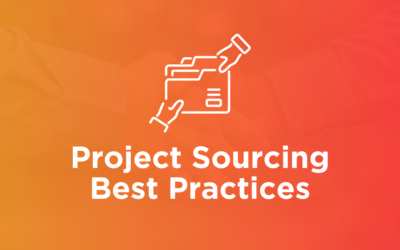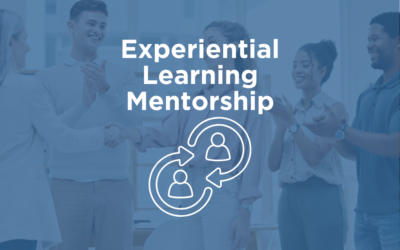CREATE is the rare cross-university experiential learning office that supports project-based learning across the university. Support for experiential learning faculty is growing but at many schools, faculty remain on their own in designing their experiential courses and programs. CREATE was designed to address this issue at MSOE and they use EduSourced as their platform to manage experiential learning. Below is our Q&A with Natalie Villegas, Assistant Director of Experiential Learning at MSOE’s CREATE Institute .
Tell us about CREATE and its vision for supporting experiential learning across MSOE
The CREATE (Community-focused Real-world engagement in Academics Through Experiential Learning) Institute is an academic unit on campus that opened its doors to the MSOE community in 2018. We strive to CREATE transformative student learning experiences that connect academic, societal, and industry needs. CREATE also aims to set the standard as a center for equity-focused, technology-enabled teaching and learning. As a higher education institution, MSOE places great emphasis on project-based experiential learning. Our goal is to ensure that all students use real-world projects in their field of study during their academic career at MSOE to foster the growth of the MSOE Mindset and become leaders of character, responsible professionals, passionate learners, and value creators.
You’ve mentioned CREATE leads by example in promoting collaboration across the school. Can you explain?
To provide some context, the CREATE Institute consists of seven members with differing technical backgrounds (engineering, education, student affairs). One of our greatest strengths is our ability to collaborate with one another. Due to our differing fields of study, we are constantly collaborating with each other on how to provide faculty, staff, and students with the best resources in teaching and learning, educational technology, and experiential learning. When you step into the CREATE office, you can physically see that we welcome collaboration through our open office layout. We actively model collaboration throughout our daily interaction with faculty, staff, and students. CREATE is known for reaching across campus and collaborating with different departments on projects and faculty programming. We strongly believe that all voices should be heard, and the best collaboration happens when diverse voices have a seat at the table.
What were the first steps and how do you see CREATE adding value now?
Our first steps on campus really pertained to community-building within the university. Like many other higher education institutions, we had a lot of wonderful and exciting things happening on campus but few people outside of a specific department knew about them (silo effect). We wanted to change that! Since we were a new unit on campus, we spent the better part of two years educating internal and external partners on the role of the CREATE Institute on campus. We also began to offer faculty development to bridge experiential learning opportunities across departments.
💡 The Importance of Process in Experiential Learning
When the pandemic hit us, we knew that we had to pivot. During that time, as a team, CREATE pivoted to provide support to faculty and students to aid in the transition into emergency remote teaching and learning. Our center for Teaching & Learning really stepped up to provide best practices in online teaching to support faculty and staff during that challenging time. We had to maintain an exceptionally fine balance between the education that MSOE is known for (hands-on, application based) and the reality of keeping all our faculty, staff, and students safe during that time.
We had to maintain a very fine balance between the education MSOE is known for and the reality of keeping all our faculty, staff, and students safe
As we enter our second academic year during the pandemic, we have learned a lot as an institution and as an academic unit. We have expanded the services of the CREATE Institute to now include an Educational Technology arm that serves both faculty and students. Along with that, we have solidified our presence internally and externally as being the home of experiential learning at MSOE. With this growth, we can better serve the MSOE and Milwaukee community at large.
MSOE has dramatically different learning environments in engineering, business and especially nursing. What is the value of a unified approach to experiential learning across them all?
Yes; engineering, business and nursing encompass different learning and educational settings, however, they all implement a facet of experiential learning. The uniting factor behind these implementation strategies is its connection to the MSOE Mindset. Our Mindset is our single greatest uniter across the different academic disciplines. A hallmark in experiential learning is reflection. To unify our approach of experiential learning, it was especially important that we understood collectively that we must give students the opportunity to reflect on the learning process. Therefore, all our experiential learning experiences highlight student reflection.
The implementation of tools like EduSourced allows us to see projects at a larger scale than in previous years
One of the greatest factors in a united approach is that it allows the institution to gain better understanding and insight as to the impact of experiential learning on campus. The implementation of tools like EduSourced allows us to see projects at a larger scale than in previous years. We can confidently gauge how active our students are with industry partners and community partners by using these tools.
Have there been any unique challenges in integrating nursing alongside the other disciplines?
I believe our biggest challenge during this process was to let go of the misconception that there is one “right way” to provide an experiential learning experience. There are many different ways to implement an experiential learning experience because there are many unique ways to learn. Therefore, it is our duty to work with faculty to support them in creating the experience they would like to provide to their students regardless of our biases.
Beyond those various disciplines, CREATE supports both curricular and extra/cocurricular. Tell us about CREATE Student Fellows, which I think is a unique program, and how it’s valuable for students.
We have worked diligently to ensure that our campus community knows that the CREATE Institute is an academic unit who supports all learners. With that being said, we work in the curricular, co-curricular, and extracurricular settings. It is important to us that students see and learn how projects and the MSOE Mindset intertwine in their daily lives. A great example of that is our CREATE Student Fellows Leadership Program. CREATE Student Fellows (CSF) are MSOE students that are employed by the CREATE Institute to offer project support and leadership mentoring for internal and external partners. These students are MSOE ambassadors that embody the MSOE Mindset in both their professional and personal lives. The CSFs go through an extensive development program in which they learn servant-leadership principles through entrepreneurially minded learning and become well-versed in the MSOE Mindset. These students also lead projects with community partners through the CREATE Institute.
In the continuum of extremely centralized experiential learning with all departments following a common project plan and completely decentralized with each department acting entirely independently and siloed, where do you think the sweet spot is?
This is a great question! I believe much like we have a multitude of different types of learners, we have a multitude of different types of faculty members. While I believe institutional policies and procedures help add structure to a learning experience, a lot of the nitty gritty details come down to the faculty members and the course learning outcomes. Our role is to act as facilitators and help faculty find the best path forward with experiential learning opportunities that benefit all stakeholders (faculty, students, community partners, and mentors). We do this by providing faculty with the research-based best practices in experiential learning and other high-impact practices.
You’ve mentioned CREATE recruits both corporate and community partners to serve as clients. Why is it important to offer both types of opportunities to your students?
Yes, we are extremely excited to provide these two unique learning experiences for our students. It is important that students view the skillsets they attain throughout their academic career as transferable. We genuinely believe that in order to fully encompass the MSOE Mindset, students must be able to apply their knowledge to different situations. As an institution, our mission is to prepare students to solve the complex challenges of today and tomorrow. To do this, we must teach students how to see the value of their skills in different applications. Industry partnerships ensure that students connect what they have learned in the classroom to real-world professional contexts. Community partnerships give students an opportunity to explore how their technical education can be used to serve different communities in ways they have not traditionally thought of. For example, how can engineering students use their technical skills to serve K-12 students during the pandemic?
💡 Watch our webinar with UH Bauer exploring the topic of students opting into employer projects
Explain the lifelong learning philosophy at MSOE and how has it impacted your approach to experiential learning?
Lifelong learning has always been part of the fabric of MSOE. So much so, that one of the four characteristics of a MSOE graduate is to be a “passionate learner.” As an institution of higher education and a community of experiential learners, we place great emphasis on allowing faculty, staff, and students to explore their curiosities. This approach has greatly affected the way we view experiential learning. To us, all learning experiences (curricular, co-curricular, extra-curricular) play a vital role in the growth of a learner. Therefore, we encourage our experiential learning community to be curious throughout their professional and personal lives.




